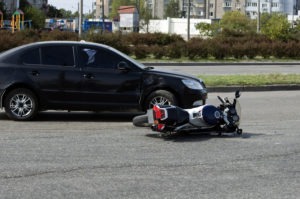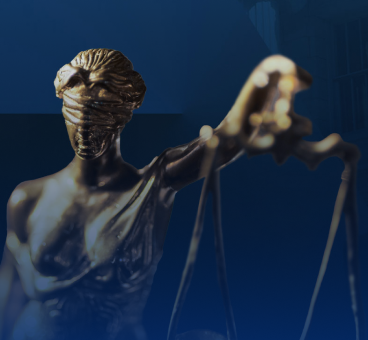
You do not need motorcycle insurance to register your bike in Florida. Be aware that if you’re uninsured and operating your motorcycle at the time of a motorcycle accident for which you are charged, you will be financially responsible for injuries sustained by others, as well as any damage to property.
After that initial accident during which you were not covered by liability insurance, you may be required to have liability insurance for three years, or your license and registration may be suspended.
If you choose to operate a motorcycle in Florida without a helmet, you are required to be insured. A Florida motorcycle accident lawyer can review your policy with you.
What Are My Motorcycle Insurance Options in Florida?
Your motorcycle insurance can be:
- Full coverage or liability-only coverage through a state-licensed insurance company
- A Certificate of Self-Insurance instead of liability insurance by proving each year that you have a certain amount of unencumbered net worth, usually $40,000
- A Financial Responsibility Certificate, which is a more cumbersome way to show self-insurance.

Why Should You Have Motorcycle Insurance in Florida?
You don’t anticipate having an accident, but things happen. If you choose not to carry motorcycle insurance, you risk your assets. You could be financially responsible.
According to the National Highway Traffic Safety Administration (NHTSA), compared to passenger vehicle occupants, motorcyclists are 28 times more likely to die in a crash and 4 times more likely to be injured. These are tragic statistics and indicative of the high cost associated with accidents involving motorcycles.
How Much Is Motorcycle Insurance in Florida?
The cost of motorcycle insurance in Florida can vary from a little over $100 to $1,000 a year, depending on the following:
- Your credit score: Insurance companies use your credit score as an indicator of financial reliability; a higher score might mean lower premiums.
- Your age: Younger riders often face higher premiums due to perceived inexperience, while older riders may benefit from lower rates.
- Whether you’re getting the minimum liability-only or full coverage insurance: Liability-only coverage tends to be cheaper but covers less, whereas full coverage provides more comprehensive protection at a higher cost.
- The model and year of motorcycle you’re insuring: Newer and more expensive models are generally more costly to insure due to higher replacement values.
- Your motorcycle riding history: A clean riding record with no accidents or violations can lead to lower insurance rates.
- How many years you’ve been riding: More experienced riders are likely to receive lower premiums due to a perceived lower risk of accidents.

Will My Car Insurance Cover My Motorcycle in Florida?
Your car insurance will not cover your motorcycle. Florida’s insurance requirements for vehicles are different from those for motorcycles.
- Personal Injury Protection (PIP), is a no-fault coverage required for vehicles with four or more wheels, but not for motorcycles. When you’re driving your car and you are injured in an accident, PIP covers a percentage of your medical costs no matter who caused the accident. PIP also helps cover lost wages.
- The state does not require PIP for motorcycle coverage, although some insurance companies in Florida may offer a similar product called Medical Payments (MedPay) coverage. Note that MedPay will not cover lost wages.

Does Florida’s No-Fault Law Apply to Motorcycles?
Florida’s no-fault law, designed to reduce the number of lawsuits following road accidents, does not apply to motorcycles. This law, which requires vehicle owners to carry Personal Injury Protection (PIP) insurance, only covers vehicles with four or more wheels. Here’s what this means for motorcycle owners:
- Filing a claim: Since motorcycles are exempt from the no-fault law, if a motorcyclist is injured in an accident, they must pursue claims against the at-fault driver to recover damages for injuries and other losses. This involves proving the other driver’s fault in the accident.
- Dealing with uninsured or underinsured drivers: If the at-fault driver lacks sufficient insurance or is uninsured, the motorcyclist’s options for compensation might be limited. In such cases, having Medical Payments (MedPay) insurance can be beneficial. MedPay can help cover medical expenses regardless of who is at fault.
- Importance of additional motorcycle insurance coverage: Because Florida’s no-fault law does not protect motorcyclists, it is particularly important for them to consider other types of insurance coverage such as MedPay, collision, and uninsured motorist coverage to ensure comprehensive protection in the event of an accident.
What Is Required to Get a License to Operate a Motorcycle in Florida?
If your motorcycle engine is bigger than 50cc:
- You must have a motorcycle endorsement on your driver license or a “motorcycle only” license.
- Florida recognizes an endorsement on a driver license from any state other than Alabama. If your endorsement is from Alabama, you need to carry a “Motorcycle Safety Foundation Basic Rider Course completion card” along with your license.
- To get an endorsement on your Florida Class E operator’s driver license, you must successfully complete either a Basic RiderCourse (BRC) or a Basic RiderCourse updated (BRCu), then get your endorsement within a year.
If you want a “motorcycle only” license:
- You must be 16 or older and have a Learner’s license for at least a year with no traffic convictions if you’re under 18
- Pass the Florida Class E operator’s knowledge test
- Successfully complete a BRC or BRCu
Is Florida a No-Helmet State?
Florida’s headgear laws change depending on your age and what you’re riding.
- If you’re over 21 years of age and a rider on or operator of a motorcycle, you do not have to wear protective headgear if you’re covered by a minimum $10,000 insurance policy that covers medical costs resulting from an accident while on said motorcycle.
- All motorcyclists must wear approved eye protection when operating their bike, but passenger riders are not required to do so.
- If you’re riding in an “enclosed cab,” or if you’re 16 or older but riding on or operating a motorcycle that cannot go faster than 30 mph on a flat surface, protective headgear requirements do not apply.
- If you’re under 16 years of age, you have to wear protective headgear when riding on or operating a motorcycle or moped.
Call Ged Lawyers for a Free Consultation
If you were in a motorcycle accident, a personal injury lawyer from the team at Ged Lawyers helps you fight for due compensation. We are committed to your case and you.
Contact us today.
